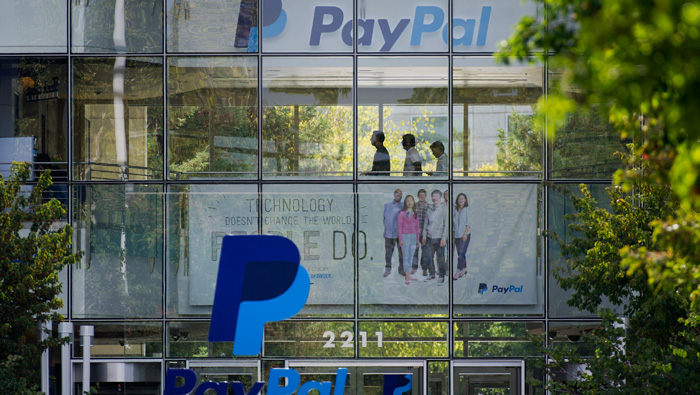
Seattle: PayPal and Visa just made up after more than a decade sparring over the future of digital payments.
The two companies announced an agreement on Thursday in which PayPal will stop discouraging customers from linking accounts to Visa cards and share more data with the card network in exchange for "long-term Visa fee certainty" and other incentives.
For Visa, the deal stems the loss of transaction fees when PayPal users link their PayPal and Venmo digital wallets to their bank accounts. For PayPal, it removes the threat of higher costs from those new fees and re-invigorates its push to become a common in-store payment tool.
The deal ends years of acrimony between the companies that escalated as PayPal’s transactions volume soared and Visa expanded into PayPal’s turf of online payments and digital wallets.
"This is a watershed moment because for the past 17 years — ever since PayPal was founded — Visa viewed it as an adversary," said Gil Luria, analyst at Wedbush Securities. "PayPal is now in a position to negotiate with Visa about rates, which it never had before."
PayPal shares rose as much as 6.9 per cent in after-hours trading on news of the deal and strong quarterly results. Visa shares were little changed in extended trading.
Less ACH
PayPal’s strategy of steering customers to link their digital wallets with a bank account drew ire from Visa executives as it allowed PayPal to process payments via the cheaper, bank-owned ACH network, cutting Visa out of transactions.
The ACH system charges a flat rate per transaction that varies depending on volume, typically between 10 and 50 cents, said Ralph Dangelmaier, chief executive officer of payments technology company BlueSnap. Debit card transactions cost about 1 per cent of the overall sale and credit cards more than 2 per cent, he said.
The difference on a small transaction is marginal but on a $1,000 purchase it is sizable since one is a flat fee and the other a percentage of the price, he said. Applying that to the billions of transactions PayPal handles every year makes ACH a major source of profit for the company.
However, PayPal chief executive officer Dan Schulman in April said the price gap between ACH and card transactions had narrowed and ACH transactions carried greater risk. The fee that Visa threatened to impose on PayPal would likely have narrowed that gap further, making it less financially attractive for PayPal to funnel users to ACH. MasterCard imposed a similar fee on PayPal and other digital wallets in June 2013.
"This agreement is a framework for Visa and PayPal to work together and move away from the Cuban Missile Crisis relations they’ve been having," Dangelmaier said.
In-store help
In return for funneling more transactions through Visa’s network, PayPal will get help expanding its reach into physical stores, an area it has been struggling with for several years. Most transactions still happen in the real world, rather than online, so it’s a big opportunity for PayPal. But Apple Inc.’s Apple Pay and Google’s Android Pay have made bigger strides in this area than PayPal lately.